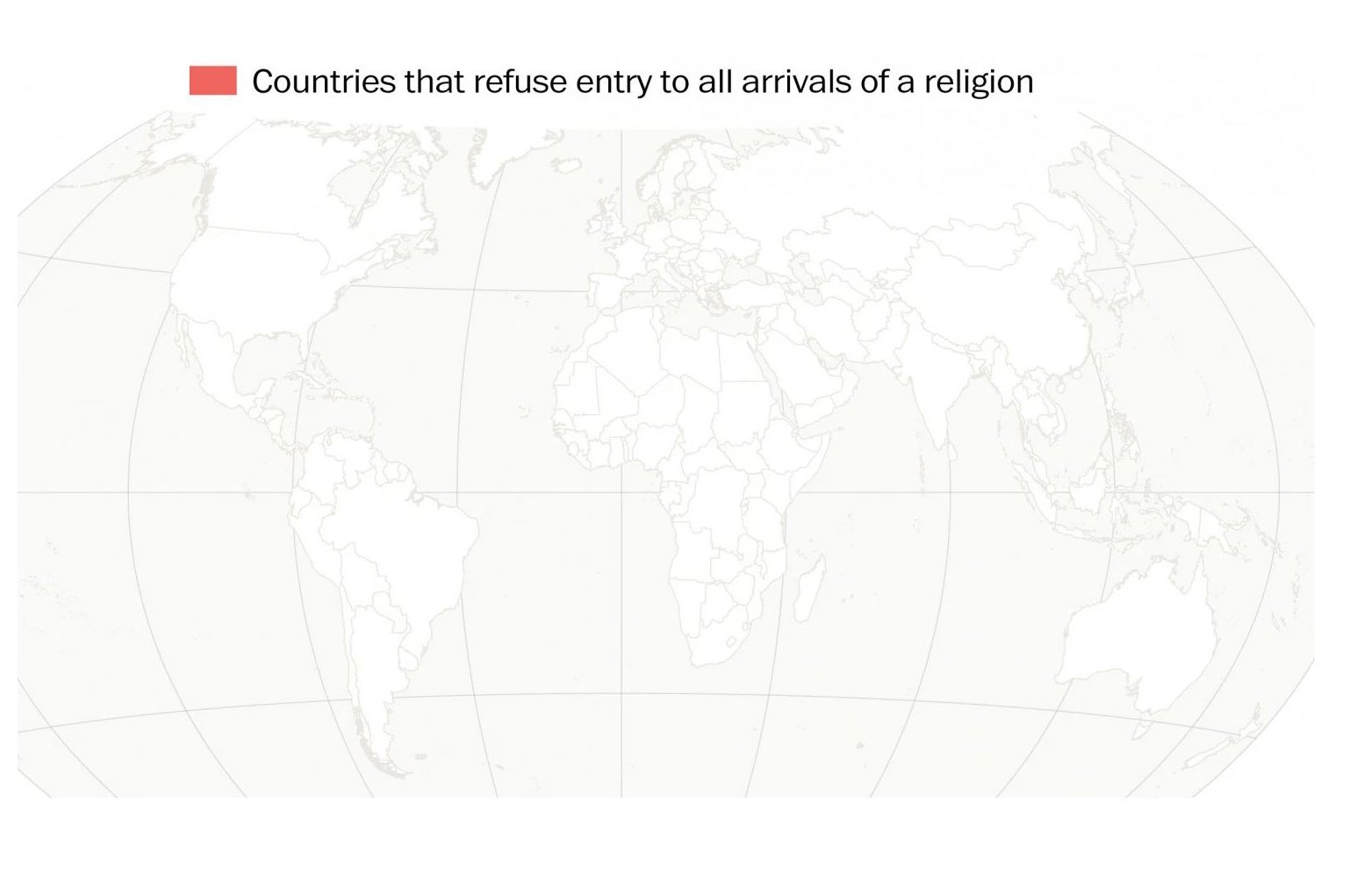Map: The countries that ban arrivals based only on religion
The above map shows how many countries have banned immigrants based on religion

Your support helps us to tell the story
From reproductive rights to climate change to Big Tech, The Independent is on the ground when the story is developing. Whether it's investigating the financials of Elon Musk's pro-Trump PAC or producing our latest documentary, 'The A Word', which shines a light on the American women fighting for reproductive rights, we know how important it is to parse out the facts from the messaging.
At such a critical moment in US history, we need reporters on the ground. Your donation allows us to keep sending journalists to speak to both sides of the story.
The Independent is trusted by Americans across the entire political spectrum. And unlike many other quality news outlets, we choose not to lock Americans out of our reporting and analysis with paywalls. We believe quality journalism should be available to everyone, paid for by those who can afford it.
Your support makes all the difference.By now, you've probably heard about Donald Trump's proposal for a “total and complete” ban on Muslims entering the United States. The plan, under which foreigners visiting the United States would apparently be quizzed on their religious beliefs at airports and refused entry if they identify as Muslim, has provoked considerable controversy around the world.
But just how unusual is this idea? Well, consider this: If the United States were to go through with this policy, it would probably be the only country in the world to openly ban arrivals based solely on religious beliefs.
Although many countries around the world have severe restrictions on religion, few, if any, have anything comparable to the scope of Trump's plan. North Korea views Christian missionaries with extreme suspicion (sometimes arresting those it accuses of proselytizing), for example, but it doesn't ban all Christians from entry. Many Arab countries and some others such as Iran may refuse entry to those with Israeli passports, but the restriction is based on nationality rather than a blanket ban on people of the Jewish faith.
Some nations also impose restrictions on entering some sites — non-Muslims cannot visit Mecca, for example — but such restrictions do not cover an entire country.
Even during the Taliban's rule of Afghanistan between 1996 and 2001 — a time of intense religious conservatism and persecution — Jews and Christians were able to travel to the country. Indeed, to find something comparable to what Trump imagines, you have to delve deep into the darker moments in history. Many observers see a comparison with Nazi Germany's treatment of Jews. Another parallel might be Imperial Japan's isolationist Sakoku era, when all foreigners were banned from entering the country largely to prevent the spread of Christianity.
This article was originally posted on the Washington Post
Join our commenting forum
Join thought-provoking conversations, follow other Independent readers and see their replies
Comments